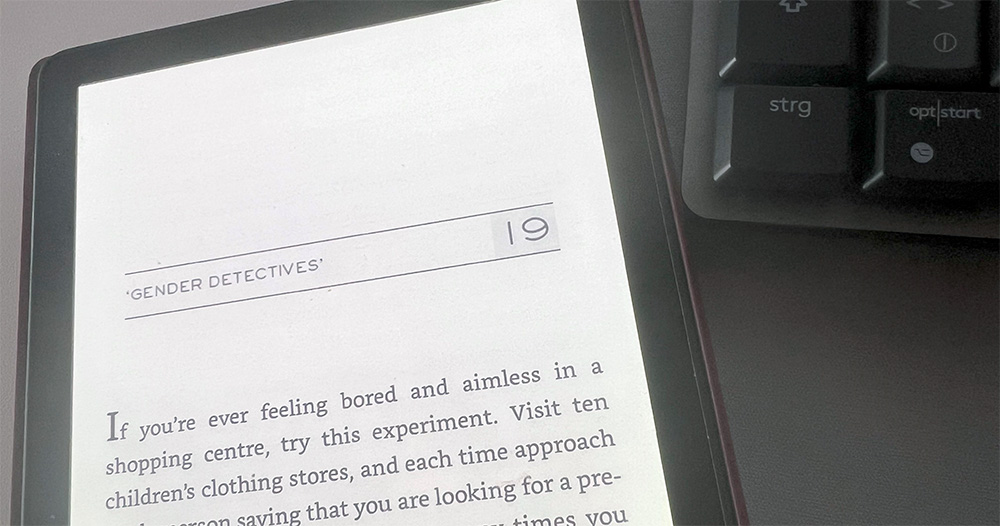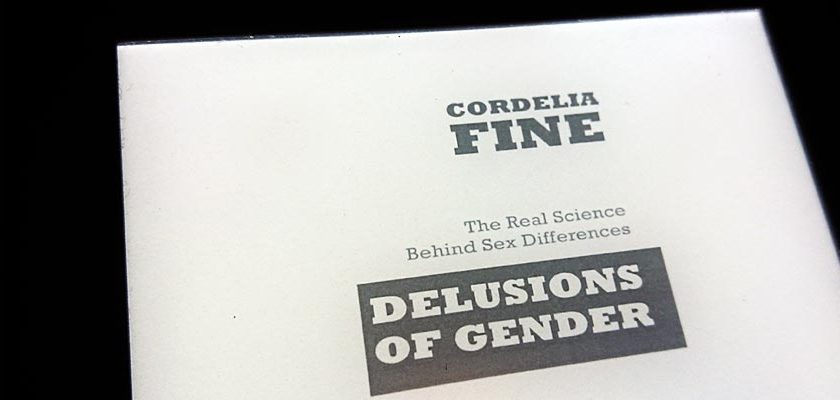So, if we want to skip the Review: this is a Book Recommendation!
I have always felt that it’s not as simple as some popular science books and authors would have you believe and it turns out, it’s not that simple.
If you would go by some popular science magazines and conventional wisdom – when it comes to differences between men and women science is settled. We know exactly what the differences are, what are the strong points of being a man and what are the strong points of being a woman.
This all was always a bit suspicious to me, it just seemed too clear-cut, too orderly and dare I say it – too sexist. Not only that but the current status quo is often defended by pointing to the biological differences. This always sounded wrong and somehow too convenient. I always had a feeling there must be something more, much more than we currently know.
In the search for a resource which would not simply reinforce our current beliefs, but potentially show where they could be weak I found this book, written by Cordelia Fine, a “Full Professor of History and Philosophy of Science at The University of Melbourne, Victoria, Australia.” – Wikipedia
Turns out, a lot of so-called conventional wisdom about sex differences is just plain wrong, as this book will show you. It is truly an eye-opening resource in many ways. The book is witty and funny, written for the general public like me. It makes the complex issues easy to understand.

The key takeaways from this book are that it seems impossible to currently reduce sex differences to a stereotype that women are mind readers and men are analytical supercomputers or even that women are better at nurturing. Not only because the various studies return different results, but it seems the mind is a complex organ which can be thrown off track by simply being in a room where it is indicated that a particular sex should achieve more, so many studies were flawed in that or similar way.
Even the ‘hard science’ approach like MRI is currently often not utilised properly and deep enough and there have been cases of science misinterpreting signals or even depending in their papers on signals that can also be found in a brain of a dead fish.
A lot of free-thinking authors and scientists are somewhat quick to jump to conclusions based on sporadic findings of science. This book shows why and where they have been wrong to do so. And let’s face it, if it can happen to professional scientists, it doesn’t seem that far-fetched to say that a lot of us atheists, sceptics, progressives, what have you, are sometimes also quick to accept any study just “because it’s science” – as opposed to religious revelation – without asking questions about that study or does it have a solid ground. Sure,
we’re human. That is precisely the point of this book.
Science should always take a look if it’s on firm ground and if it’s not – correct itself. And the author and similar scientists are doing just that when it comes to the questions of differences between men and women.
In short, this book does exactly what good critical thinkers do – asks if the results are reliable and show where they are not. This is the self-correcting nature of science which has made progress possible. I would recommend it to anyone. Also, just to mention again, in case somebody thinks the author is a food blogger or something – she has a University College London PhD in Psychology (Institute of Cognitive Neuroscience).
If you really want to claim you’re a sceptic, you will seek answers for yourself, question and double and triple check everything, no matter who says it.

